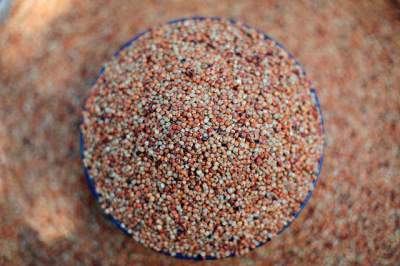Apples are among the most popular fruits worldwide, renowned for their delicious taste, convenience, and numerous health benefits. As more people seek effective ways to lose weight and improve their health, the question arises: Are apples beneficial for weight loss? In this blog, we will explore the nutritional profile of apples, their potential impact on weight loss, and the myriad health benefits they offer.
The journey toward effective weight loss often involves dietary changes, increased physical activity, and the incorporation of nutritious foods. Apples, with their crisp texture and sweet-tart flavor, are not only a delightful snack but also a versatile ingredient in many dishes. This blog delves into the science behind apples, examining their role in weight management and overall health improvement.

Why Focus on Weight Loss?
Weight loss is a common goal for many people, driven by various factors including health concerns, aesthetic preferences, and lifestyle choices. Achieving a healthy weight can lower the risk of chronic diseases, improve mental health, and enhance overall quality of life. Understanding the foods that support weight loss can empower individuals to make better dietary choices.
1. Nutritional Profile of Apples
A. Caloric Content
One of the most compelling reasons apples are often associated with weight loss is their low caloric content. A medium-sized apple (approximately 182 grams) contains about 95 calories. This makes apples an excellent choice for a satisfying snack without significantly contributing to daily caloric intake.
B. Fiber Content
Apples are rich in dietary fiber, particularly soluble fiber called pectin. A medium apple contains about 4 grams of fiber, which contributes to feelings of fullness and aids in digestion. Fiber slows down the digestion and absorption of nutrients, which can help regulate blood sugar levels and curb appetite.
C. Vitamins and Minerals
Apples are packed with essential vitamins and minerals that contribute to overall health. Some key nutrients found in apples include:
- Vitamin C: An antioxidant that supports the immune system and promotes skin health.
- Potassium: An essential mineral that helps regulate blood pressure and fluid balance.
- Vitamin K: Important for blood clotting and bone health.
D. Antioxidants
In addition to vitamins and minerals, apples are rich in antioxidants, particularly quercetin, catechin, and chlorogenic acid. These compounds have been linked to various health benefits, including reduced inflammation and improved heart health.
2. How Apples Support Weight Loss

A. Low Energy Density
Energy density refers to the number of calories in a given volume of food. Foods with low energy density, like apples, provide fewer calories per gram, allowing you to consume larger portions without overeating. This can lead to reduced overall caloric intake, making weight loss more manageable.
B. Increased Satiety
The high fiber content in apples promotes satiety by slowing digestion and enhancing feelings of fullness. Eating an apple before a meal can reduce overall calorie consumption, making it easier to stick to a weight loss plan. Studies have shown that incorporating fruits high in fiber can help people feel fuller for longer periods.
C. Natural Sugar
While apples contain natural sugars, their fiber content helps moderate the release of glucose into the bloodstream. This prevents rapid spikes and crashes in blood sugar levels, reducing cravings for sugary snacks and promoting stable energy levels throughout the day.
D. Versatile and Convenient
Apples are incredibly versatile and can be enjoyed in various ways—raw, cooked, in salads, or as part of a smoothie. This makes them an easy addition to meals and snacks, helping individuals maintain a healthy diet without feeling deprived.
3. Health Benefits of Apples
A. Heart Health
Numerous studies suggest that regular apple consumption is associated with improved heart health. The soluble fiber in apples helps lower cholesterol levels, while the antioxidants reduce inflammation and prevent the oxidation of LDL cholesterol, both of which contribute to cardiovascular disease.
B. Blood Sugar Regulation
Apples may help regulate blood sugar levels, making them an excellent choice for individuals with diabetes or those at risk. The fiber content slows the absorption of sugar into the bloodstream, preventing spikes in blood sugar. Some studies have also shown that consuming apples is linked to a lower risk of type 2 diabetes.
C. Gut Health
The fiber in apples acts as a prebiotic, promoting the growth of beneficial gut bacteria. A healthy gut microbiome is crucial for overall health, influencing digestion, metabolism, and even mental well-being. Regularly consuming fiber-rich foods like apples can support gut health and improve digestive function.
D. Weight Management
Incorporating apples into a balanced diet can aid in weight management. Their low-calorie content, high fiber levels, and natural sweetness make them an ideal snack for those looking to lose or maintain weight.
E. Cancer Prevention
Some studies suggest that the antioxidants found in apples may play a role in reducing the risk of certain cancers. Research indicates that apple consumption may be linked to a lower risk of colorectal, breast, and lung cancers, though more studies are needed to establish definitive conclusions.
F. Enhanced Immune Function
The vitamin C content in apples supports the immune system, helping the body fend off infections and illnesses. A strong immune system is essential for maintaining overall health, especially during cold and flu season.
G. Skin Health
Antioxidants in apples can contribute to healthier skin by fighting free radicals that cause skin aging and damage. Consuming apples regularly can support skin health and promote a youthful appearance.
4. How to Incorporate Apples into Your Diet

A. Snack Ideas
- Sliced Apples with Nut Butter: Pair apple slices with almond or peanut butter for a nutritious snack that combines healthy fats, protein, and fiber.
- Apple Chips: Bake thin apple slices for a crunchy, low-calorie alternative to traditional chips.
- Cinnamon Apples: Sprinkle sliced apples with cinnamon for a delicious and healthy treat.
B. Meal Additions
- Salads: Add diced apples to salads for a refreshing crunch and natural sweetness.
- Oatmeal: Mix chopped apples into your morning oatmeal for added fiber and flavor.
- Smoothies: Blend apples with spinach, yogurt, and your favorite fruits for a nutritious smoothie.
C. Cooking and Baking
- Apple Sauce: Make homemade applesauce without added sugar for a healthy dessert or topping.
- Baked Apples: Core apples and fill them with oats, nuts, and spices, then bake for a warm and satisfying dessert.
- Soups and Stews: Add chopped apples to savory dishes for a touch of sweetness and depth of flavor.
5. Addressing Common Concerns
A. Are All Apples Created Equal?
While all apples share similar health benefits, some varieties may have slightly different nutrient profiles. Generally, all apples provide fiber and antioxidants, but varieties like Granny Smith may contain higher levels of certain antioxidants. It’s beneficial to consume a variety of apple types to maximize health benefits.
B. Organic vs. Conventional Apples
Choosing organic apples may reduce exposure to pesticide residues. However, washing apples thoroughly can help remove surface residues. Both organic and conventional apples can contribute to a healthy diet, so the choice may depend on personal preferences and budget.
C. Allergies and Sensitivities
Some individuals may have allergies or sensitivities to apples. Common symptoms include itching, swelling, or digestive discomfort. If you suspect an allergy, consult a healthcare professional for guidance.
6. Practical Tips for Buying and Storing Apples
A. Selecting Fresh Apples
When purchasing apples, look for firm, unblemished fruits with vibrant color. Avoid apples with soft spots, bruises, or wrinkles, as these may indicate spoilage.
B. Storing Apples
Store apples in the refrigerator to prolong their freshness. Apples can be kept in a crisper drawer or in a plastic bag with ventilation holes. For optimal flavor, allow apples to come to room temperature before eating.
C. Preparing Apples
Wash apples thoroughly under running water to remove any pesticides or wax. For recipes, peel apples if desired, but keep in mind that many nutrients are found in the skin.
7. Conclusion
Apples are a delicious and nutritious fruit that can play a significant role in weight loss and overall health. Their low caloric content, high fiber levels, and wealth of vitamins and antioxidants make them an ideal choice for anyone looking to improve their diet and support their weight management goals.
By incorporating apples into your meals and snacks, you can enjoy their health benefits while satisfying your taste buds. Remember, achieving weight loss and health goals requires a balanced approach that includes a variety of nutrient-rich foods, regular physical activity, and lifestyle adjustments.
So, the next time you’re searching for a healthy snack or a flavorful ingredient, reach for an apple—your body will thank you!

